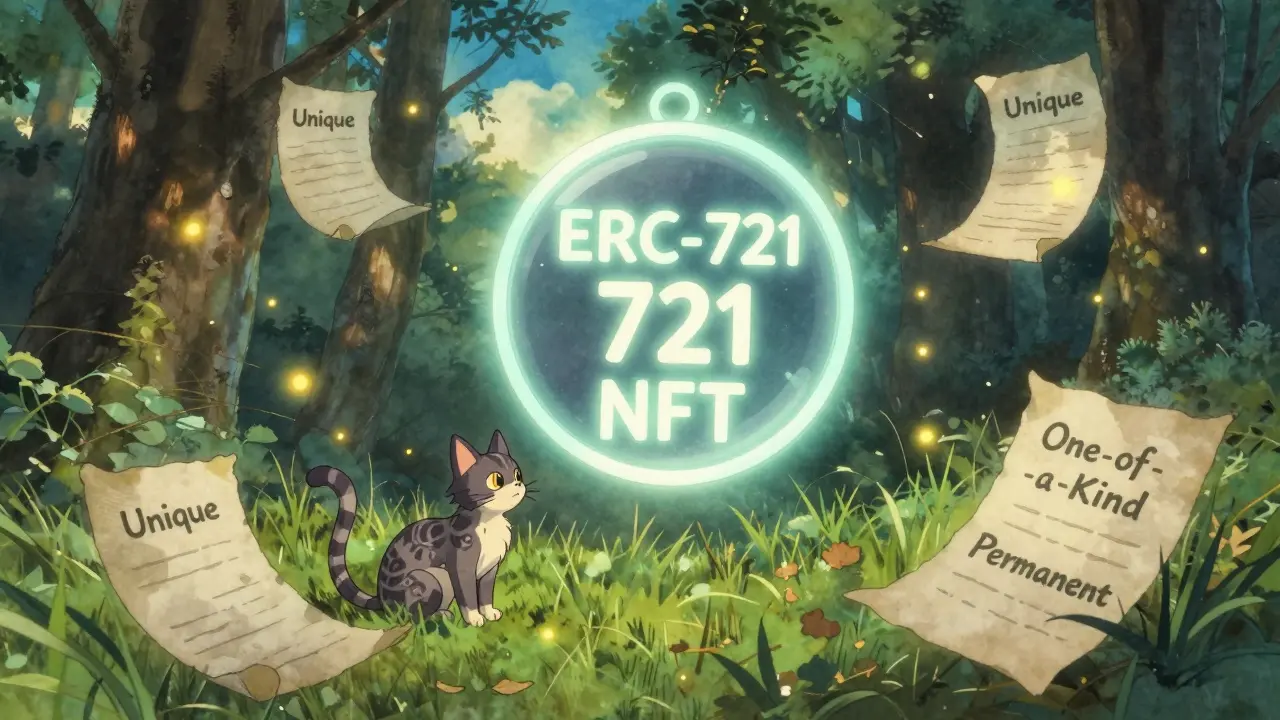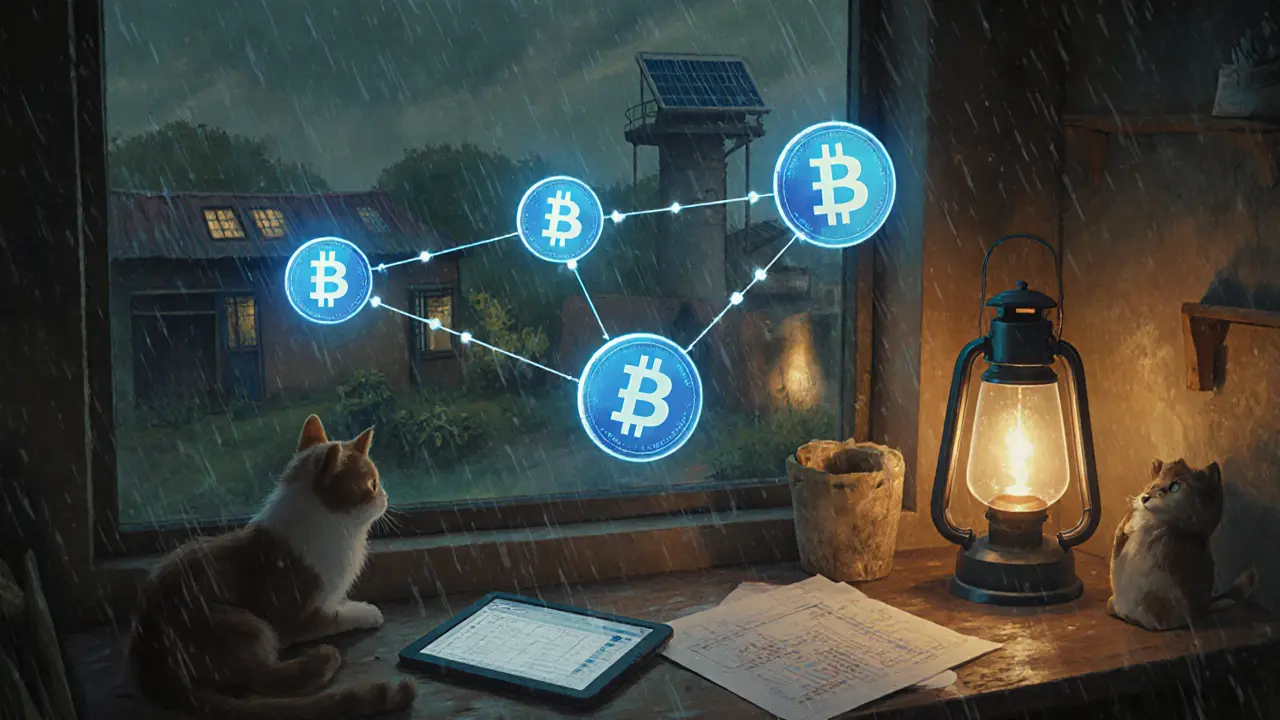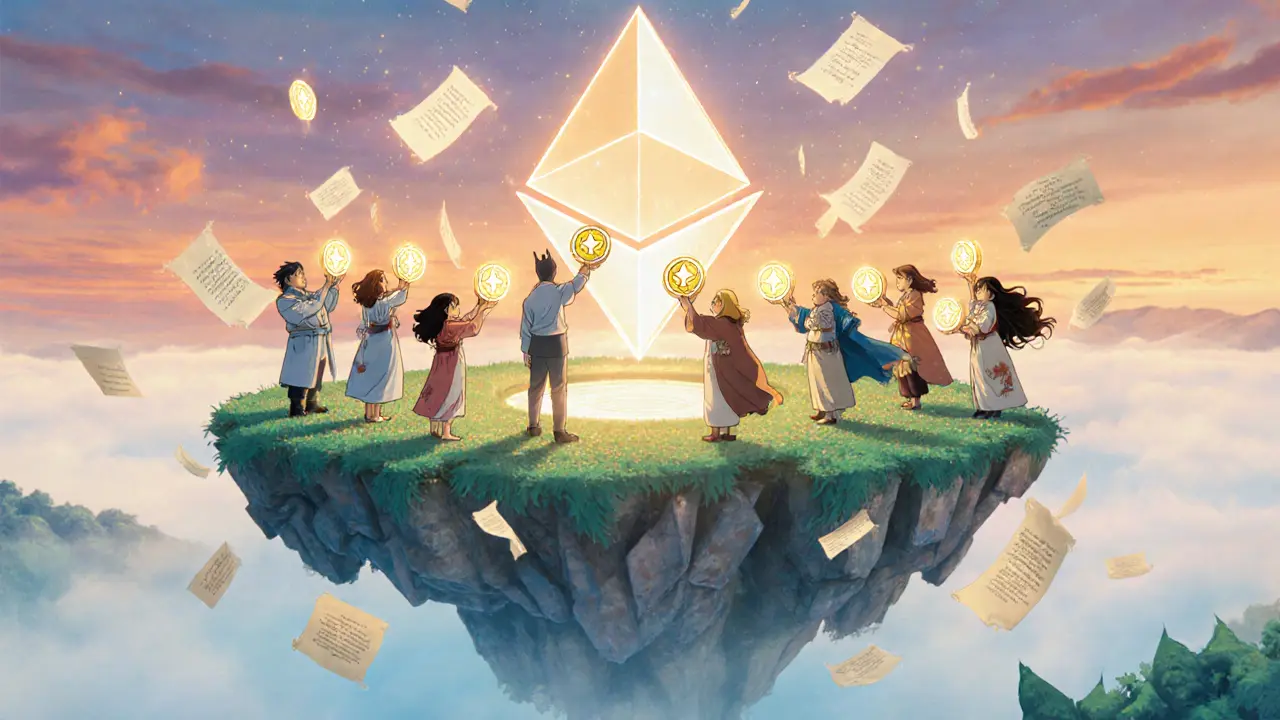Blockchain: How It Works, What It Powers, and Why It Matters
Understanding Blockchain is essential for anyone eyeing the future of finance, data, and digital trust. When working with Blockchain, a decentralized ledger that records transactions across many computers. Also known as distributed ledger technology, it powers cryptocurrencies, supply‑chain tracking, voting systems, and more. One core property is Blockchain immutability, the guarantee that recorded data cannot be altered without network consensus, which means the system prevents retroactive changes and maintains trust among participants. Because every block links to the previous one, trying to rewrite history would require controlling more than half of the network – a scenario known as a 51 % attack. In practice, blockchain encompasses decentralized ledgers, blockchain immutability secures those ledgers, and NFT, a token that represents unique digital ownership on a blockchain leverages that security to certify rarity and provenance. This relationship lets creators sell art, musicians issue limited tracks, and event organizers issue collectible tickets that cannot be forged. Regulators often ask whether immutable records can comply with privacy laws such as GDPR; the answer lies in off‑chain storage or selective encryption, keeping personal data out of the public ledger while preserving auditability. Developers also use smart contracts to automate rules, turning the ledger into a programmable agreement platform. All of this builds a foundation for the topics you’ll explore in our article collection.
Key Topics Covered
Token standards define how digital assets behave on a blockchain. The older ERC‑721 standard creates a single‑purpose token for each item, which makes it simple but gas‑heavy. The newer ERC‑1155 packs multiple token types into one contract, cutting costs and enabling hybrid items like game assets that can be both fungible and non‑fungible. These standards directly influence how NFTs are minted, transferred, and displayed, and they determine the feasibility of advanced use cases such as NFT ticketing for events. In 2025, NFT ticketing platforms let organizers issue tickets that double as collectibles, reducing fraud and opening secondary‑market royalties. Meanwhile, businesses looking for control over data privacy and transaction speed turn to Private blockchain, a permissioned ledger that restricts participation to known parties. Private blockchains enable enterprises to streamline supply‑chain verification, speed up settlement in financial services, and protect patient records in healthcare without exposing sensitive information to the public. They also provide a sandbox for governments to test digital identity solutions while maintaining regulatory oversight. Across these themes, we see a pattern: blockchain enables decentralized trust, token standards shape that trust into usable assets, and private networks tailor the technology for industry‑specific needs.
Below this intro you’ll find a curated set of guides that dive into each of these corners. From a deep look at how and when blockchain data can be altered, to side‑by‑side comparisons of ERC‑721 and ERC‑1155, to real‑world private blockchain deployments, the collection equips you with the knowledge to evaluate, adopt, and innovate with blockchain technology. Ready to see the details? Let’s explore the articles that break down the concepts, showcase practical examples, and give you actionable takeaways.
Sustainable Blockchain Practices: How Eco-Friendly Ledgers Are Changing Finance and Supply Chains
Sustainable blockchain practices use energy-efficient consensus like proof-of-stake to cut emissions, verify supply chains, and tokenize green assets. By 2026, major networks have ditched wasteful mining for clean, scalable systems that support real-world sustainability.
How NFT Standards Define Functionality: ERC-721, ERC-1155, and Beyond
NFT standards like ERC-721 and ERC-1155 define how digital assets are created, transferred, and displayed on blockchains. They determine cost, compatibility, and functionality - not just the art you own.
Decentralized Storage Security: How It Keeps Your Data Safe Without Centralized Servers
Decentralized storage security splits your data into encrypted fragments across thousands of nodes, eliminating single points of failure. Unlike cloud storage, you control the keys-no company can access, delete, or censor your files.
Future of NFTs in Gaming Industry: Ownership, Play-to-Earn, and What’s Really Working in 2026
NFTs in gaming are shifting from speculative hype to real digital ownership. In 2026, success comes from gameplay-first design, cross-game asset use, and mobile-friendly experiences-not just play-to-earn profits.
BaaS Use Cases and Applications in Modern Finance
BaaS lets non-bank companies offer banking services like accounts and payments through APIs. Discover real-world use cases, top providers, hidden costs, and whether it's right for your business in 2025.
Smart Contract Bug Bounty Programs: How They Protect Billions in Crypto
Smart contract bug bounty programs pay ethical hackers to find security flaws in DeFi and blockchain protocols. Learn how they work, top platforms, real payouts, and why they're essential for protecting billions in crypto.
Future of AML in Blockchain: How Blockchain Is Changing Financial Crime Fighting
Blockchain is transforming AML by making financial transactions transparent and traceable. With AI-driven tools and new regulations, crypto compliance is becoming faster, smarter, and more effective-though privacy coins and DeFi still pose major challenges.
Future of Security Token Markets: How Blockchain Is Rewriting Finance
Security token markets are turning real estate, stocks, and commodities into digital assets backed by blockchain. With institutional adoption rising and regulatory clarity improving, this $250B sector could hit $30T by 2030.
Blockchain IP Marketplaces: How Creators Are Selling Patents and Art on Decentralized Platforms
Blockchain IP marketplaces let creators sell patents, music, and art directly using smart contracts and immutable ledgers. No middlemen, no delays - just secure, global transactions.
Challenges Facing DePIN Networks: Why Decentralized Infrastructure Is Harder Than It Looks
DePIN networks promise decentralized infrastructure powered by everyday users, but face major hurdles in token economics, regulation, hardware costs, and scalability. Here’s why they’re harder to build than they seem.
Carbon Credit Trading on Blockchain: How Tokenized Offsets Are Changing Climate Markets
Blockchain is transforming carbon credit trading by turning offsets into transparent, tradeable digital tokens. Learn how tokenized credits work, who’s leading the space, and why quality matters more than tech.
DAO Governance Token Models Explained: How Voting Power Works in Decentralized Organizations
Governance tokens let token holders vote on decisions in decentralized organizations. Learn how token-based, reputation, and hybrid models work, the risks of plutocracy, and how to start participating in DAO voting.
















